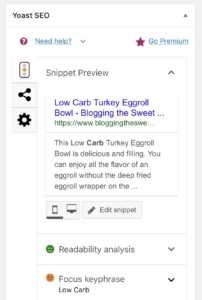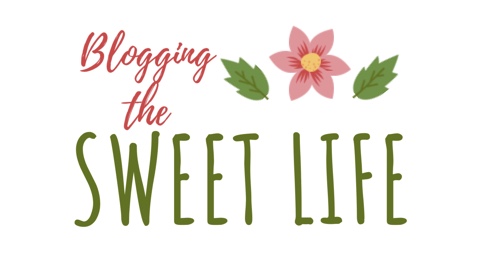Understanding “Keywords” and why you need them for Blogs and Pinterest

So there’s a lot of questions that seem to circulate on social media from people who are new to blogging and using Pinterest as to understanding the term “Keywords” and why you need them anyway.
Per Google Ad Support, your keywords can be used as follows:
“When someone searches on Google, your ad could be eligible to appear based on the similarity of your keywords to the person’s search terms, as well as your keyword match types. Keywords are also used to match your ad to sites in the Google Network that are related to your keywords and ads.”
The topic of “Keywords” seems to be a topic that seems to mystify a lot of people. I know I wasn’t 100% clear on what it meant for quite some time when I started blogging and using Pinterest. I think I had at least the general concept but didn’t have a clue how to put it into action.

First, let me start by saying, I haven’t been blogging for an eternity, so I’m not going to pretend I know everything there is to know about blogging. What I will say is there are some terms that I have finally been able to grasp the meaning of, including the word Keywords and it relates to why we need them in our blog posts or when we are using Pinterest.
I don’t recall the site that I stumbled upon when I was doing a little research to try to figure out what the term Keywords meant. However, what I did find was a link to a few websites and phone apps that simplify understanding how to put words to action. There is one website that I pretty much keep bookmarked on my phone or where ever I am doing most of my work.
The author of the site breaks down keywords in depth and provides numbers of use to help you understand and get the big picture. It’s almost like a light bulb goes on in your head when you see what relation words play to trends in how people are searching for items.
Another site I found relates “keywords” and “long-tail keywords” to a dragon. A dragon’s head and sloping down to it’s tail which is the long-tail version of the key word you are researching.
Target Audience
Our readers are our target audience who are looking and searching for answers to their questions. Those “words” that they use in whatever search engine they are using are “keywords.” And those are the keywords we want to hone in on so we can monetize our blogs or Pinterest to fill their need and make a sale.
I personally love helping others get into blogging. It’s your own little piece of the WWW (world wide web)…your business that no one can take away from you or judge your efforts or motives. You get what you put into it!
It’s a win-win. You provide info they need and they provide you the sale you want!
Recently, during a lunch break at work (yes, I still work my day job), it came to mind that I would use my spare time to jot down a couple of ideas I had for potential blog posts. In doing so, I thought to myself, I have XYZ topics that I am personally interested in writing about.
Now, the topics I wrote down are things that I may be interested in. However, I constantly have to remind myself that I am not writing for me. In fact, you are not writing for you. We are writing content for our readers and what their needs are.
WordPress Plug-ins
I created my blog on WordPress.org as a self-hosted site using Bluehost. Assuming you’re familiar with WordPress, you may know that there are various plug-ins used to make our lives easier. For the purpose of my blog, I installed a plugin named SEO Yoast. I’m sure there’s other ones out there but this happens to be the one that I’m using.
At first, I was clueless just like many people. Once I started to figure things out, I wrote a post 10 Things I Learned as a New Blogger. Now, between the use of the SEO Yoast plugin and the phone app I look on for keywords, I think I pretty much have it down to a science. What I mean is I have come to a good understanding of what I need to do to maximize my opportunities to rank in SEO (search engine optimization). We all need this to get readers to my site.
If you’re using SEO Yoast, you’ll note that that there’s a red light, a yellowish/orange light and a green light that appears at the bottom of your draft post. Obviously green means your composition is good to go. So, when you see the green light, Yoast is rating your post’s content to let you know how it may rank on the internet when someone is doing a search based on the information you’re providing in your post.
As an example you can see below, in a post I wrote about Low Carb Turkey Eggroll Bowl, you’ll see my readability is good. The light is green. So I have clear keywords, but Yoast is telling me my focus key phrase isn’t the best, but it’s just ok. I’ll have to work on that until that light turns green. Yoast also gives pointers as to how to make corrections for SEO optimization.

Since there really is no magic bullet, learning what works is ever changing. Try to find what works best for your blog niche or Pinterest. The results will show when your readership grows.
For the longest time, well before I started to pay attention to what I was writing (well, I don’t mean it exactly like that because I really do pay attention to what I write) I wasn’t focused on the needs of my readers. What I mean is, I was typing from my heart and thinking ‘wow this is a great post’ and I thought I was sharing all this great info with my readers. Guess what, I was missing the mark because my posts didn’t necessarily meet the needs of my readers. The beauty of creating your blog on Bluehost, is that you can go in and update, modify and correct your posts as much as you want.
Does your blog post or pin use keywords that people are searching for? If not it will be difficult for people to find you.
Examples of how to find keywords
One of my many hats in life is as a pastry chef and cake designer. Often I look up the word “cake” in the google search bar or on Pinterest. My own search term using the word “cake” is a very general search term. The term cake is so broad in fact, my search results would yield me everything under the sun including cupcakes, bundt cakes, pound cakes, birthday cakes, wedding cakes etc.
Now, however, if I use long-tail keywords, which is the longer more specific version of what I am looking for, let’s say “wedding cakes,” I can guarantee I am going to hit a very specific group of results because I am narrowing that search. Narrowing it down further, I can search the term “rustic wedding cakes.” As you can see, I’m not only targeting someone looking for cakes…wedding cakes…but also rustic wedding cakes.
Who’s searching for your topic
The next question is who is searching for your topic? Also, how many people are actually searching for my topic using the keywords you are putting in your post? If you are very specific using not only keywords but long-tail key words, your readers are people are who looking for that very specific rustic wedding cake, not just cakes generally.
Once you find keywords for your posts the light bulb goes on and you’ll probably say to yourself …hey wait a minute, this is what people are searching for! Therefore, you want to constantly be thinking to yourself “how can I tailor my post or my pins to fill a need or answer that question” that people are searching for the most.
There are plenty of apps and programs available for using Keywords. The information shows how many people are searching for that keyword. You’ll also get information on how many people are writing about your topic.
Finding Balance
Using keywords and long-tail key words is a bit of a balancing act. Obviously, you want to find keywords that are good for your readership. The flip side to that is you don’t want to necessarily use the same terms or “keywords” that everyone in the world is using.
Example is the word “blog.” I bet you’re thinking wow, it’s easily searchable, Guess what, you also have competition with a gazillion people who are searching and using that same keyword. The keyword “blog” is so broad that you can potentially get lost in the shuffle of everyone out there who’s answering your reader’s questions. So, just as in the example of the cake above, you want to narrow it down further to suit your needs.
Again, this isn’t science but you want to have a balance so you can use keywords that not everyone is using on their blog posts and Pinterest. At the same time, you still want to find keywords that many people are using in their searches.
In it’s simplest form, the terms “Keywords” are words which help point someone to the information or product you are writing about or something you are trying to sell
At the end of the day, we’re are all here to write about things that we are passionate about and things that we enjoy. Maybe you’re writing about things that inspire you in whatever your niche is. A good portion of us don’t just write to write, but we are seeking a residual income. Therefore, if you use your keywords correctly, you’ll find that your readership will increase.
I hope this helped you understand what the term key words means.
If you have any questions or comments, please let me know.
Also…sharing is caring. Please like and share this post if you found it helpful.



Sasha | 10th May 19
This is a great, easy do you understand explanation for beginners on keywords!
admin | 19th May 19
Thanks! Understanding key words is crucial to bloggers.